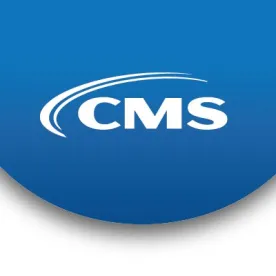The Centers for Medicare & Medicaid Services (CMS) has issued an Interim Final Rule (IFR) establishing the COVID-19 vaccination requirements for staff employed at Medicare- and Medicaid-certified providers and suppliers.
The IFR requires covered staff to be fully vaccinated against COVID-19 by January 4, 2022, or have received an approved religious or medical exemption or deferral by that date.
Overview
In the preamble to the IFR, CMS states that covered providers and suppliers must comply with federal anti-discrimination laws, including the Americans with Disabilities Act and Title VII of the Civil Rights Act, and, therefore, may be required to give an exemption to the vaccination requirement as an accommodation under those laws.
The IFR provides, in part, that:
-
Covered providers and suppliers must implement mandatory vaccination policies that include a process by which staff may request an exemption from the vaccination requirement for medical or religious reasons in accordance with applicable federal law;
-
There is no “test out” option;
-
Only religious or medical exemptions are permitted, and any such requests must be submitted by December 5, 2021;
-
Covered staff (except for those who have pending requests for, or who have been granted, medical, or religious exemptions to the IFR vaccination requirements, or those for whom COVID-19 vaccination must be temporarily delayed, as recommended by the CDC, due to clinical precautions and considerations) must receive their first dose of a multi-dose COVID-19 vaccine series by December 5, 2021, and all covered staff must be fully vaccinated by January 4, 2022, or have received an approved religious or medical exemption. Employees who received their final vaccine dose but are not yet 14 days post-vaccination by January 4, 2022, will be considered compliant;
-
Covered providers and suppliers must track and securely document the vaccination status of each staff member, including those for whom there was a temporary delay in vaccination; and
-
Covered providers and suppliers must implement a process for ensuring additional precautions intended to prevent the transmission and spread of COVID-19 for all staff who are not fully vaccinated for COVID-19.
Healthcare Entities Covered
The IFR applies to the following Medicare- and Medicaid-certified providers and suppliers:
-
Ambulatory Surgical Centers;
-
Hospices;
-
Psychiatric residential treatment facilities;
-
Programs of All-Inclusive Care for the Elderly;
-
Hospitals (acute care hospitals, psychiatric hospitals, hospital swing beds, long term care hospitals, children’s hospitals, transplant centers, cancer hospitals, and rehabilitation hospitals/inpatient rehabilitation facilities);
-
Long Term Care Facilities, including Skilled Nursing Facilities and Nursing Facilities, generally called nursing homes;
-
Intermediate Care Facilities for Individuals with Intellectual Disabilities;
-
Home Health Agencies;
-
Comprehensive Outpatient Rehabilitation Facilities;
-
Critical Access Hospitals;
-
Clinics, rehabilitation agencies, and public health agencies as providers of outpatient physical therapy and speech-language pathology services;
-
Community Mental Health Centers;
-
Home Infusion Therapy suppliers;
-
Rural Health Clinics/Federally Qualified Health Centers;
-
End-Stage Renal Disease Facilities;
The requirements do not apply directly to:
-
Physician offices not regulated by CMS;
-
Organ Procurement Organizations; and
-
Portable X-Ray Suppliers.
However, the IFR’s preamble clarifies that staff working for these organizations may indirectly be subjected to the requirements if under contract with other healthcare entities that are subject to CMS vaccine requirements. For instance, if a staff member of an Organ Procurement Organization goes onsite to a covered hospital to perform services, they are likely indirectly covered.
Staff Covered
For most settings, the vaccination requirement applies to all staff, regardless of clinical responsibility or patient contact. All current and new staff who provide any care, treatment, or other services for the facility or its patients are covered. The IFR also applies to nonemployees, such as students, trainees, volunteers, and individuals who provide care, treatment, or other services for the facility or its patients under contract or other arrangement.
There is a limited exception to the vaccination requirement for staff who provide services completely remotely, such as fully remote telehealth or payroll services. However, vaccination is required for staff who primarily provide services through telework, but may sometimes encounter fellow staff who will enter a healthcare facility or site of care for their job responsibilities.
Penalties for Noncompliance
CMS will issue interpretative guidelines, including survey procedures, to govern enforcement. Depending on the level of noncompliance, covered providers and suppliers may face civil money penalties, denial of payment for new admissions, or termination of the Medicare/Medicaid provider agreement.
Next Steps
The IFR was published in the Federal Register on November 5, 2021, and comments will be accepted for 60 days, until January 4, 2022, but the IFR will go into effect immediately, with key compliance deadlines of December 5, 2021, and January 4, 2022, as discussed above. There is no sunset provision.
Meanwhile, covered providers and suppliers should:
-
Review existing vaccine policies, if any, to determine additional compliance requirements, especially as to specific guidance and rules around religious or medical exemptions;
-
Craft policies and exemption forms and procedures to comply with the tight deadlines; and
-
Train managers and human resources staff on these requirements, including issues surrounding religious and medical exemptions that are likely to arise.
Many questions remain unanswered, including the application of the IFR in jurisdictions where mandatory vaccines are prohibited. The IFR’s preamble states that the IFR preempts any such state or local laws. Similarly, the IFR provides that any exemptions for religious or medical reasons must be based on federal law, not addressing the applicability, if any, of state religious or medical accommodation standards. Employers should seek legal counsel for advice on these and other thorny issues.







 />i
/>i
